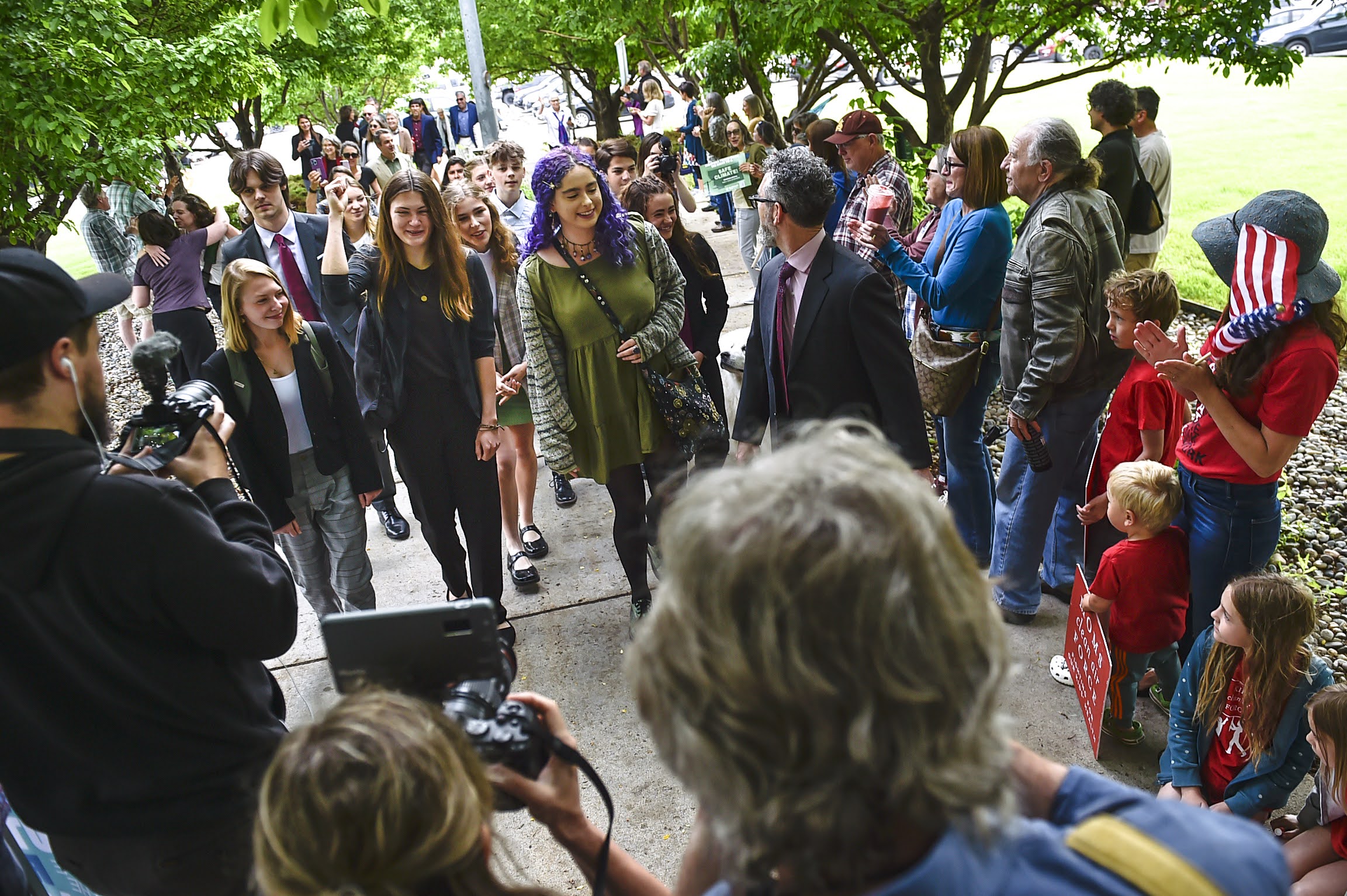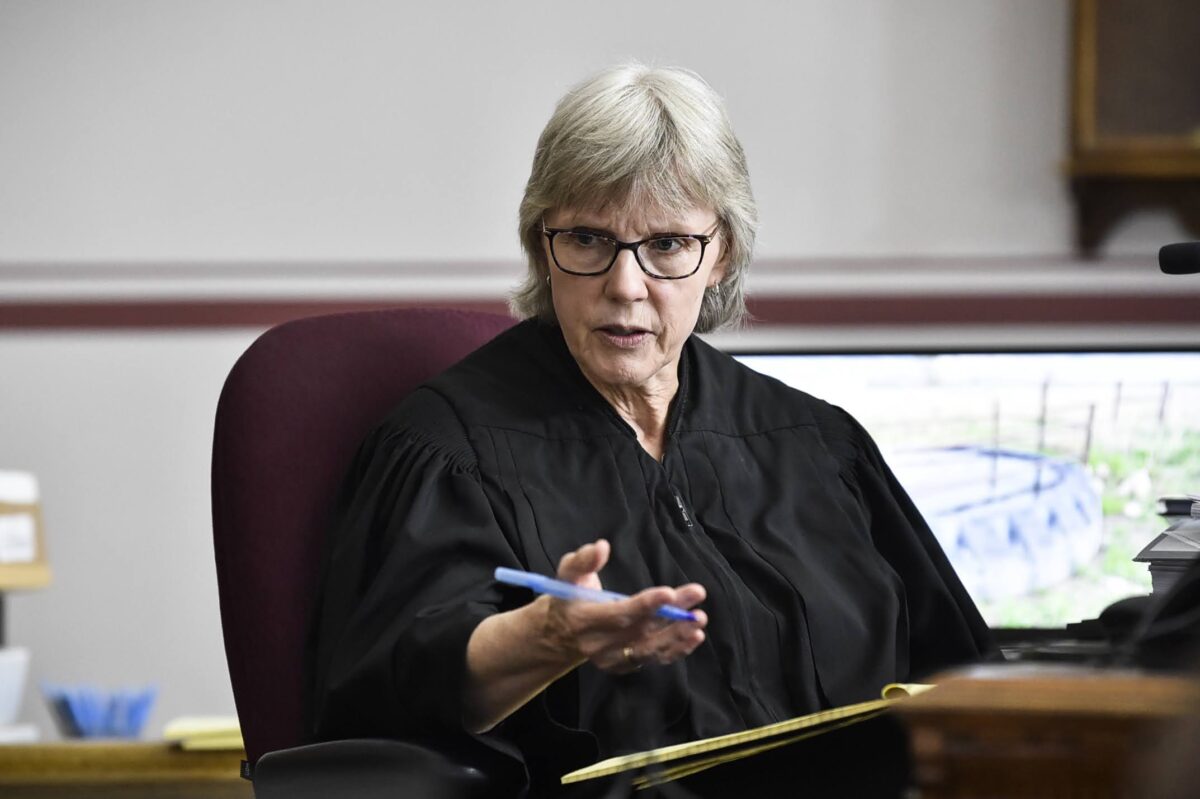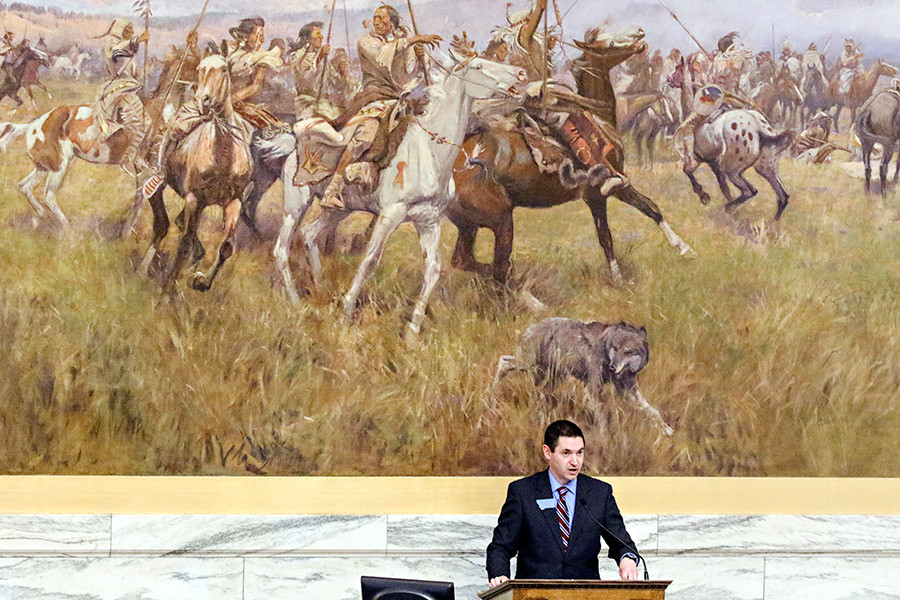State of Montana Appeals Landmark Climate Change Decision in Youth-led Case
The Attorney General's office submitted an appeal to the Montana Supreme Court challenging the ruling in Held v. Montana that upheld the constitutional right to a 'clean and healthful environment'
By Micah Drew
The Montana Attorney General’s Office has appealed a landmark ruling in the constitutional climate change lawsuit Held v. Montana, in which a state district judge declared 16 youth plaintiffs have a “fundamental constitutional right to a clean and healthful environment.”
The state filed its notice of appeal on Sept. 29 with the Montana Supreme Court, sending the Aug. 14 ruling by Lewis and Clark County District Court Judge Kathy Seeley to the state’s high court.
Following a high-profile bench trial that drew global attention in June, Seeley’s ruling overturned two state statutes enacted by Montana’s Republican-led Legislature this year — House Bill 971 and Senate Bill 557, both of which made changes to the Montana Environmental Policy Act, a 1971 law that requires state agencies consider the potential environmental impacts of development proposals and collect public input prior to approval. One overturned law had prohibited the state Department of Environmental Quality (DEQ) from considering the effects of greenhouse gases during the permitting process for fossil fuel projects, which Seeley determined violated the Montana Constitution.
“As an attorney on the case, I welcome the opportunity to have what we believe is a very strong order by Judge Seeley affirmed by the Supreme Court,” said Melissa Hornbein, an attorney with the Western Environmental Law Center, which served as co-counsel for the plaintiffs.
During the 10-day trial in June, attorneys for the 16 youth plaintiffs argued that the state’s regulatory process for permitting projects violated their constitutional right to a clean and healthful environment by promoting industry and exacerbating climate change. Twelve of the youth, ranging from ages 14 to 22, testified about how their quality of life has been compromised by both the real-time effects of climate change as well as its daunting implications for their futures. Plaintiffs spoke about wildfire smoke canceling sporting and recreational events, the impact to Native American cultural identity, and the drought and wildfire impacts to agriculture, hunting and fishing.

The state disputed the evidence that burning fossil fuels contributes to climate change in a meaningful way, and denied that Montana’s increasingly severe wildland fire seasons and drought are linked to its legacy of supporting projects reliant on coal, oil and gas. The state also attempted to portray Montana’s greenhouse gas emissions as insignificant on a global scale.
Emily Flowers, a spokesperson for the Attorney General’s office, called the initial ruling “absurd,” and the trial a “tax-payer funded publicity stunt.”
Since the Aug. 14 decision by Judge Seeley, the effects of the historic ruling have already begun rippling through the state, with the Montana DEQ on Monday holding its first of four public hearings seeking input on how to modernize MEPA in the wake of the Held ruling, including how to consider greenhouse gas emissions during environmental reviews.
“DEQ stands behind the intent and purpose of MEPA as a bedrock environmental process,” DEQ Director Chris Dorrington said in a statement. “We also recognize that regulatory frameworks require updating to account for the experiences over the past 50 years. MEPA was adopted in the 1970s. The administrative rules that implement MEPA were adopted in the 1980s. These regulations are showing their age and it’s time to hear from Montanans about what MEPA should look like today and into the future.”
DEQ will hold listening sessions with the public in Helena on Oct. 18 and Missoula on Oct. 19, as well as an online only session Nov. 1. Public comments can be submitted online until Dec. 1. “We want to start a thoughtful dialogue about greenhouse gas emissions and other topics, and we are seeking input that is balanced and driven by sound science,” Dorrington stated.

According to judicial procedure, the state has 60 days to file its brief laying out its appeal of Seeley’s ruling, barring any extensions. According to Hornbein, the Supreme Court could hold oral arguments on the appeal next spring or summer.
Roger Sullivan, a Kalispell-based attorney also representing the plaintiffs, said the legal team is looking forward to the appeal process.
“It’s really a wonderful opportunity to have the highest court of Montana review the trial record of this proceeding,” Sullivan previously told the Beacon. “Legal rulings are predicated on these findings of fact which are unassailable, and we had the most extraordinary and qualified witnesses establish the facts about how Montana’s practices, and these statutes in particular, are harming Montana’s youth and the climate.”